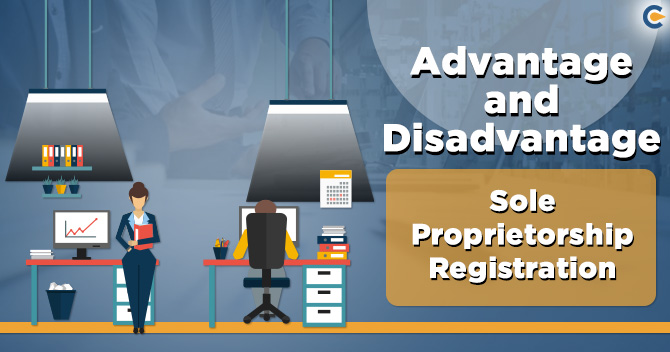Advantages of Sole Proprietorship
In this article, we will explore the advantages of sole proprietorship and why it can be a beneficial business structure for individuals. A sole proprietorship is a type of business entity where an individual owns and operates the business on their own, without any formal legal structure.
Flexibility and Control
One of the key advantages of a sole proprietorship is the flexibility and control it offers to the owner. As the sole proprietor, you have complete control over all business decisions, allowing you to respond quickly to market changes and make decisions that align with your vision and goals.
Easy Setup and Low Costs
Setting up a sole proprietorship is relatively easy and inexpensive compared to other business structures. There are no complex legal requirements or formal registration processes involved. You can simply start operating your business under your name or a trade name, depending on your preference and local regulations.
Minimal Compliance Requirements
Unlike corporations or partnerships, sole proprietorships have minimal compliance requirements. This means less paperwork, fewer regulations to adhere to, and a reduced administrative burden. As a result, you can focus more on running your business and less on fulfilling legal obligations.
Direct Profits and Tax Benefits
As the sole owner of the business, you are entitled to all the profits generated by the business. Unlike other business structures, there is no need to share profits with partners or shareholders. Additionally, sole proprietorships often enjoy certain tax benefits, such as the ability to report business income and expenses on your tax return.
Privacy and Confidentiality
Sole proprietorships offer a high level of privacy and confidentiality. Since there are no legal requirements to disclose financial information or business details publicly, you can keep your business affairs private. This can be particularly advantageous for individuals who value their privacy or operate in sensitive industries.
Quick Decision-Making
In a sole proprietorship, decision-making is quick and efficient. You don’t need to consult with partners or board members, which can often slow down the decision-making process in larger organizations. This agility allows you to seize opportunities promptly and adapt to changing market conditions.
Personal Connection with Customers
Being the sole proprietor of your business enables you to establish a personal connection with your customers. You can build stronger relationships, provide personalized service, and tailor your offerings to meet their specific needs. This personal touch can lead to increased customer loyalty and satisfaction.

In conclusion, a sole proprietorship offers several advantages, including flexibility, control, easy setup, low costs, minimal compliance requirements, direct profits, tax benefits, privacy, quick decision-making, and a personal connection with customers. By understanding these advantages and leveraging them effectively, individuals can successfully operate and grow their businesses as sole proprietors.
Frequently Asked Questions about the Advantages of Sole Proprietorship
1. What is a sole proprietorship?
A sole proprietorship is a business structure where an individual owns and operates the business as a personal asset.
2. What are the advantages of a sole proprietorship?
The advantages of a sole proprietorship include:
Complete control and decision-making power
Ease of formation and low startup costs
Flexibility in operations
Direct access to profits
Simplified tax reporting
3. Can a sole proprietorship have employees?
Yes, a sole proprietorship can have employees, but the owner remains solely responsible for the business.
4. Do I need to register a sole proprietorship?
In most cases, you don’t need to register a sole proprietorship, but it’s recommended to check with local authorities and obtain any necessary licenses or permits.
5. Are there any limitations to a sole proprietorship?
Yes, there are some limitations. The owner has unlimited personal liability for the business’s debts and obligations.
6. Can a sole proprietorship borrow money?
Yes, a sole proprietorship can borrow money, but the owner is personally responsible for repaying the debt.
7. What happens to a sole proprietorship if the owner dies?
If the owner dies, the sole proprietorship may be dissolved, unless it’s passed on to a successor or specified in a will.
8. Are there any tax advantages to a sole proprietorship?
Yes, there are potential tax advantages, such as the ability to deduct business expenses from personal income.
9. Can a sole proprietorship convert into another business structure?
Yes, a sole proprietorship can be converted into a different business structure, such as a partnership or corporation.
10. Are there any disadvantages to a sole proprietorship?
Some disadvantages include unlimited personal liability, limited access to capital, and potential difficulty in attracting investors.
11. Can a sole proprietorship have a separate business bank account?
Yes, it is recommended to have a separate business bank account to keep personal and business finances separate.
12. Is it easy to dissolve a sole proprietorship?
Yes, dissolving a sole proprietorship is generally easier compared to other business structures.
13. Can a sole proprietorship be sold?
Yes, a sole proprietorship can be sold, but the owner must transfer all assets and liabilities to the buyer.
14. Can a sole proprietorship hire independent contractors?
Yes, a sole proprietorship can hire independent contractors to perform specific tasks or projects.
15. Do I need to file separate taxes for a sole proprietorship?
No, a sole proprietorship’s income and expenses are reported on the owner’s tax return.




